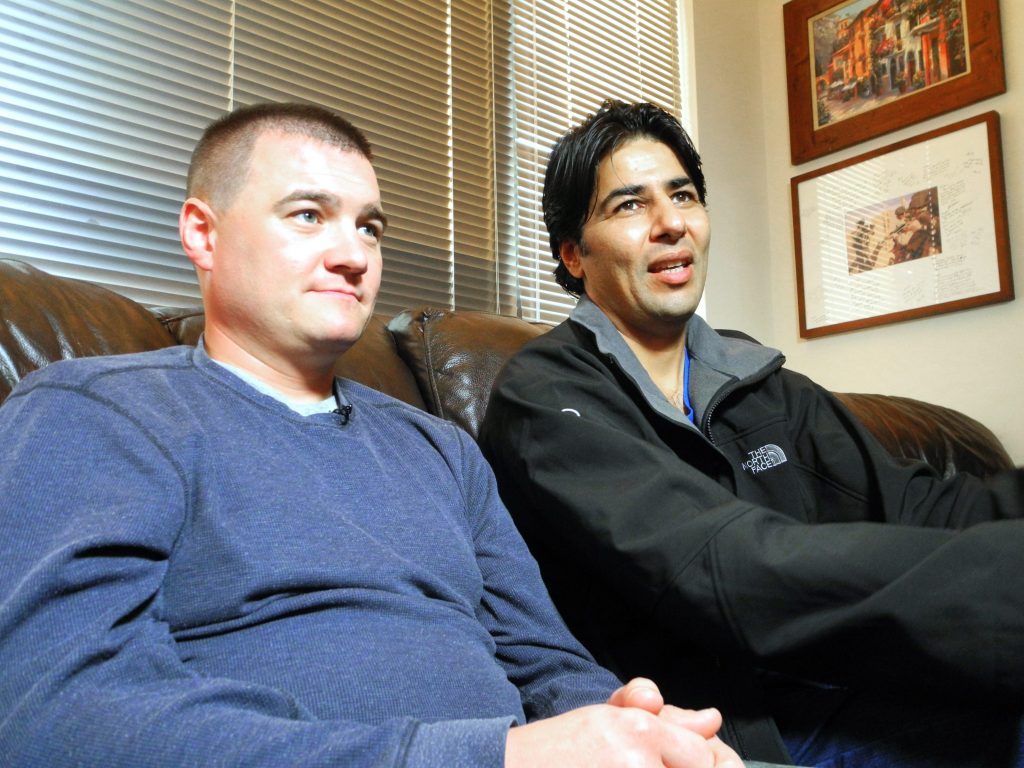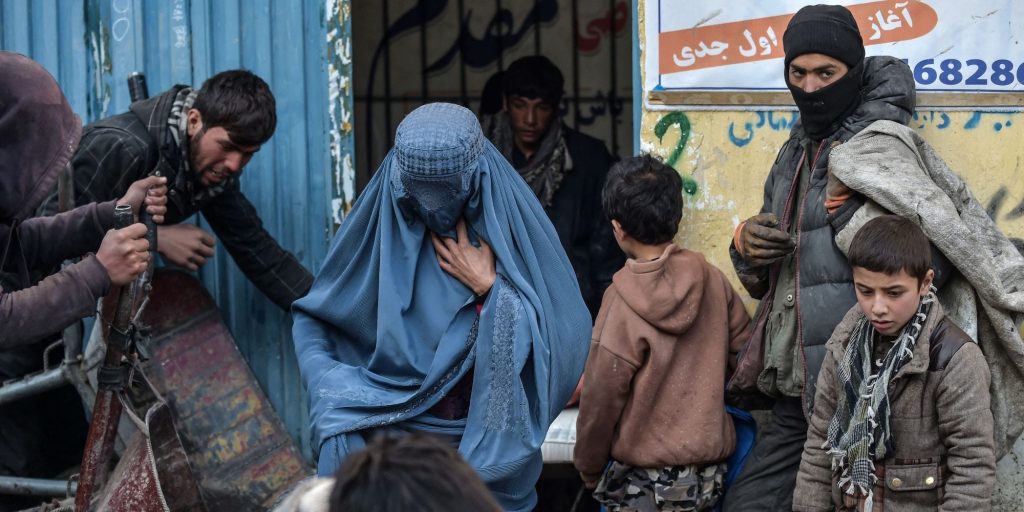- It's been about one year since the US pulled out of Afghanistan, leaving some of its allies behind.
- A former CIA analyst and Afghanistan war vet said people in the country still need help getting out.
- He said it's a problem that Ukrainian refugees are receiving more aid than Afghan nationals.
A former CIA analyst and Afghanistan war veteran said people from Afghanistan that are seeking refuge in the US aren't being helped in the same way Ukrainian refugees.
"The president of the United States could, right now, at this very minute save most of these people," Matt Zeller, senior advisor for the Iraq and Afghanistan Veterans of America organization, told Insider while speaking about the people who were left behind in Afghanistan.
Zeller argued those awaiting help in Afghanistan should have access to the same humanitarian parole as Ukrainian refugees.
More than 300,000 Afghan civilians helped the US military during the 20-year war, but thousands were left behind, with many awaiting visas for years prior to the pullout, The New York Times reported. Zeller, who works with several organizations that assist veterans and allies, says he has not been able to get anyone out of the country since the Taliban took over.
The US withdrawal from Afghanistan was completed around one year ago on August 30, 2021. It marked the culmination of 20 years that the US military spent conducting operations to prevent terrorist attacks on NATO member countries from the region in the wake of the September 11, 2001, terror attacks.
Russia's unprovoked invasion of Ukraine is also approaching its six-month mark, but the US response has not been the same for refugees from both countries.
At least 76,000 Afghans migrated to the US since withdrawal plans were announced in 2021. Meanwhile, more than 71,000 Ukrainians have sought refuge in the US since the war began on February 24, 2022.
Ukrainians are able to seek parole through a program called Uniting for Ukraine, which allows people in the US to sponsor Ukrainians they know to come to the country. The parole allows refugees to stay in the US while their visa or citizenship is processed — which may take as long as 18 years, according to Zeller.
Uniting for Ukraine is "a pathway for Ukrainian citizens and their immediate family members who are outside the United States to come to the United States and stay temporarily in a two-year period of parole," according to the Department of Homeland Security's Citizens and Immigration Services sector.
One caveat, the department adds, is that participants are required to have a fully-vetted "supporter in the United States who agrees to provide them with financial support" for their two-year stay, but there is no fee to apply.
Afghan nationals who remain in the country are not eligible for humanitarian parole, per the department's website: "At this time, we are unable to complete processing of your parole request while you are in Afghanistan because the U.S. Embassy in Kabul is closed and all normal consular services in Afghanistan have been suspended."
Parole for Afghan nationals is only available for those who made it outside of Afghanistan on their own since the embassy shut down, according to USCIS.
By May of this year, approximately 45,000 Afghan people had applied for humanitarian parole since last July, but only 270 were conditionally approved, while 2,200 applications were denied, PBS reported.
The parole application also costs nearly $600, making it an unaffordable option for many, Forbes reported.
"My qualm is, if we can do it for the Ukrainians, why can't we do it for our nation's longest wartime ally?" Zeller told Insider.

As the process stands, according to Zeller, people in Afghanistan that worked with the US military and are looking to get out of the country can try applying for the Special Immigration Visa program.
The program, which differs from humanitarian parole, is available only "to persons who worked with the U.S. Armed Forces or under Chief of Mission authority as a translator or interpreter in Iraq or Afghanistan," according to the State Department. It also only issues up to 50 visas per year.
"That's assuming that they survived the Taliban death squads that are actively hunting them or the famine that's ongoing — which is so horrific that parents are literally selling their children so that they can get food to feed their other kids," Zeller said.
Economic turmoil in the region has led to a food shortage affecting millions of Afghans, Insider previously reported. World Vision, a humanitarian organization in Afghanistan, said the shortage has forced parents to face the difficult decision to sell their children to provide food for the rest of the family.
"The only thing your readers really need to know is that Afghanistan is hell on earth," Zeller added. "We abandoned the vast majority of the people that we were trying to assist to die the most gruesome and painful and prolonged of deaths."
